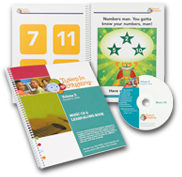Music and Rett Syndrome Research
Music and Rett Syndrome Research

According to the International Rett Syndrome Foundation, Rett Syndrome is a unique neurodevelopmental disorder which begins to show its affects in infancy or early childhood. It is seen almost exclusively in females, although it can occur rarely in boys. It is found in all racial and ethnic groups throughout the world.
Music and Rett syndrome research supports the benefits of music therapy in the treatment and many parents of girls with Rett syndrome have found music to be an integral part of their daughter’s life. Coast Music Therapy has compiled the latest studies with the most persuasive results and regularly updates this list to reflect the most current research.
Overall, music, rhythm, and musical instruments are of significant interest and motivation to girls with Rett syndrome and have been used successfully in preliminary studies to increase purposeful hand use, communication, choice making, activation of augmentative devices, and self-regulation.
Get music tips and view our music therapy services for individuals with Rett syndrome»»
2014 Research
Neurophysiological responses to music and vibroacoustic stimuli in Rett Syndrome.
The aim of this study was to investigate physiological and emotional responses related to musical stimuli in 29 participants with Rett Syndrome (RTT). Eleven typically developing children were used for comparison. Using a repeated measures design, physiological data was collected from a neurophysiological brainstem assessment to measure calming, activating, and alerting responses. Participants with and without RTT responded with an arousal to all musical stimuli. These results are consistent with the possibility that individuals with RTT have an intact response to music; giving further support for why music is so important through the lifespan for those with RTT.
Research in Developmental Disabilities 2014; 35(6), 1281-91
Bergstrom-Isacsson, M., Lagerkvist, B., Holck, U., & Gold, C.
2009 Research
A qualitative motion analysis study of voluntary hand movement induced by music in patients with Rett syndrome.
Ten girls ages 3-17 were included in the study. It was found that auditory rhythm had a close relationship with body movement and facilitated synchronized body movement. Conclusions indicated that stimulation with music could be utilized for rehabilitation.
Neuropsychiatric Disease and Treatment 2009; 5, 499-503
Go, T., Mitani, A.
Music therapy for individuals with Rett syndrome.
Based on a review of literature, music promotes and motivates the desire to interact and communicate for girls with RS, as well as develops their cognitive, affective, sensorimotor, and physical skills. Since most individuals with RS do not have verbal communication, music can function as a means for self-expression.
International Journal on Disability and Human Development 2009; 8(4), 359-368
Elefant, C.
2007 Research
Autonomic responses to music and vibroacoustic therapy (VT) in Rett syndrome: a controlled within-subject study.
Twenty-one individuals with RS were exposed to various music and vibroacoustic stimulation. Conclusions indicated that music and VT had measurable effects on brainstem autonomic functions in RS.
Nordic Journal of Music Therapy 2007; 16(1), 42-59
Bergstrom-Isacsson, M., Julu, P. Witt-Engerstrom, I.
2005 Research
Learning ability in children with Rett syndrome.
A single subject, multiple probe design with 7 girls with RS revealed that all 7 girls demonstrated discrimination skills and choice making abilities for musical stimuli presented.
Brain & Development 2005; 27(Supp. 1), S97-S101
Elefant, C., Wigram, T.
Music therapy as a tool for assessing hand use and communicativeness in children with Rett syndrome.
This article discusses assessment through music therapy for a 6-year-old girl with RS revealed decreased hand clasping, turn-taking, eye referencing, and vocalization in the context of music-based interventions.
Brain & Development 2005; 27(Supp. 1), S95-S96
Wigram, T., Lawrence, M.
2004 Research
Rett Syndrome: Dual intervention- music and physical therapy.
Results from a case study suggested an increased tolerance to intervention with the collaboration of music therapy approaches.
Nordic Journal of Music Therapy 2004; 13(2), 172-182
Elefant, C.
2001 Research
Music and the Rett disorder: The Swedish Rett Center survey.
A survey of caregivers to 144 individuals with Rett syndrome was conducted. Music played an important role in daily life and results found individuals could discriminate their preferred songs.
Nordic Journal of Music Therapy 2001; 10(1), 43-53
Merker, B., Bergstroem-Isacsson, M., Engerstroem, I.
Music therapy for children with Rett Syndrome.
Three case studies of active music therapy to improve hand use are presented.
Brain & Development 2001; 23 (S82-4)
Yasuhara, A., Sugiyama, Y.
1997 Research
Evoking communication in Rett Syndrome: Comparisons with conversations and games in mother-infant interaction.
Girls with Rett syndrome respond to repeated patterns of expression found in rhythmic play and music; some of these avenues can help stabilize self-regulation and facilitate learning.
European Child and Adolescent Psychiatry 1997; 6 (Supp. 1), 26-30
Burford, B., Trevarthen, C.
The relevance and value of music therapy for children with Rett Syndrome.
Two case studies in which music was used to influence positive change in vocalizations, visual attention, physical activity, and emotional expression.
British Journal of Special Education 1997; 24(3), 124-128
Hill, S.
1996 Research
A case study to promote hand use in children with Rett Syndrome.
The use of rhythm instruments for two preschool-aged girls with Rett syndrome resulted in a significant increase from pretest to posttest measures of hand use.
Music Therapy Perspectives 1996; 14, 83-86
Wylie, M.
Teaching children with Rett Syndrome to request preferred objects using aided communication: Two preliminary studies.
This article describes the incorporation of music to increase switch activation in one individual.
Augmentative & Alternative Communication 1996; 12(2), 88-96
Sigafoos, J., Laurie, S., Pennell, D.
1994 Research
Fostering environmental control in a young child with Rett syndrome: A case study.
Data indicated the child’s ability to respond to music/toy contingencies was retained despite the degeneration of other skills.
New Brunswick, NJ: Institute for the Study of Child Development. 1994; (ERIC Document Reproduction Service No. ED376643)
Sullivan, M.W.
1986 Research
Motivational conflicts in Rett Syndrome.
Behaviors can be reduced if sources of motivation such as music are used.
American Journal of Medical Genetics Supplement 1986; 1, 143-51
Zappella, M.
Music therapy for children with Rett Syndrome.
Music therapy can assist with decreasing stereotypic movements.
American Journal of Medical Genetics 1986; 24(Supp 1), 253-257
Wesecky, A.
The role of therapy in Rett Syndrome.
This article discusses the role of occupational, physical, and music therapies.
American Journal of Medical Genetics Supplement 1986; 1, 247-52
Hanks, S.


